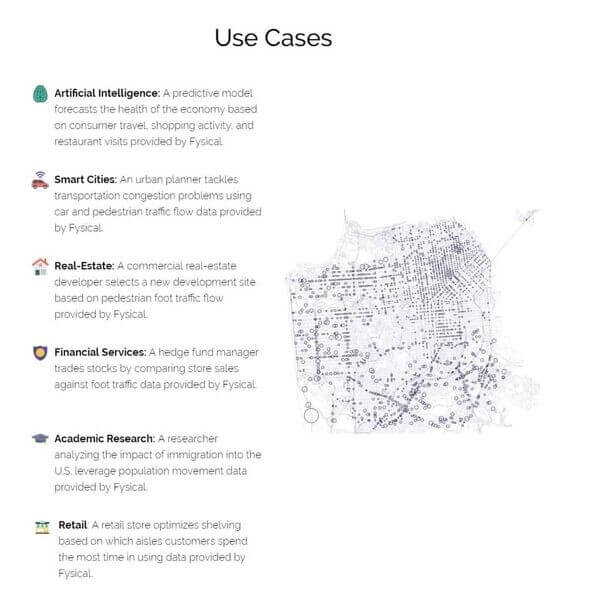Why is the median home sales price in Huntsville, AL $161,000 while the same in Los Angeles, CA is $831,000? There are a plethora of reasons, but the main one follows a well known real estate saying, “Location, location, location!” In real estate markets, as with many other industries, location is of utmost importance.
Believe it or not, location is increasingly important in the tech and marketing industries. Location data specifically is one market segment that is driving more and more businesses into analyzing human movements and traffic patterns. All of a sudden, Google and Apple maps tracking data is of utmost importance.
Take as an example, a survey reported by Inc.com. The study found that 84% percent of Pokemon Go players visited a business while playing the game. Not only that, but the average player spends over $11 (per visit) at local businesses while playing. The most amazing stat of all–51% of Pokemon Go players visited a business for the first time while playing the game. Without Pokemon Go–and the location data therein–some businesses would have never been introduced to these new customers.
Unfortunately, the location data industry is run by large, centralized corporations who don’t have user interests in mind. They collect location data from app and smartphone users without their knowledge by burying the agreements deep within legal documents. The invasion of privacy is a serious concern, as are the prices that other businesses pay to access said data. In order to address these glaring issues, the blockchain startup Fysical is developing a decentralized location data platform that will increase user privacy while simultaneously cutting the costs associated with procuring and analyzing location data.
How the Fysical Platform Privatizes Location Data
The key tenant of the Fysical platform is that it puts user location data back into owners’ hands. The platform operates a decentralized location data market where data suppliers have the choice whether or not they want to provide the location data they store. Instead of a large corporation unilaterally selling third party data to the highest bidder, the Fysical platform lets ’s data collectors and owners sell their own data on their own terms.
In addition to being monetarily incentivized to sell their data, data suppliers benefit from the platform’s decentralized blockchain infrastructure. Because of the power of the blockchain, data suppliers will be able to control and track data usage, ensuring that the buying party isn’t tampering with or misusing their data. Consumers can also claim their data at the aggregate level and be compensated from all types of smartphone apps. Thus rather than coercing data providers to give up their data, the Fysical platform encourages them to do so through monetary incentives.
How Does Fysical Benefit Businesses?
Thankfully for business owners and data buyers, location data transactions don’t have to be a zero-sum game. Data buyers, just like data sellers, also benefit from increased transparency. For one, the decentralized marketplace cuts out large third-party costs–often from legal and financial institutions–by utilizing smart contracts to secure transactions. By automating key payment processes in an efficient manner, Fysical lowers purchasing costs for data buyers.

What’s more, data buyers have the ability to audit and validate a dataset’s supply chain. This means they have all the location data they need right at their fingertips–and in a traceable manner. This is particularly useful for compliance departments where proof-of-origin is required. Then, once a company purchases data, they are able to use and analyze it as they please, so long as they are operating under the contract’s stipulations. The transparency of Fysical helps companies ensure that the location data they purchase is accurate and high-quality.
What Will the Fysical Platform Achieve?
How does the Fysical app work from start to finish? First, a consumer agrees to let an app track their movements, and store the location data on the app’s cloud. In turn, the consumer has the opportunity to profit from their own location data.
Second, the app aggregates the data from all its consenting consumers and sells it on the Fysical app, with every transaction secured by smart contracts. All data suppliers are paid for their contributions, while the data buyer benefits from receiving pure, accurate data.
If the data buyer is a bike shop they can use the data acquired from the Fysical marketplace to track movements from the high school down the road to the coffee shop next door. Then, using this data, the bike shop can design a strategic marketing and sales campaign, all designed around the location data from Fysical. They in turn are able to sell bikes to people who (previously) walked from school to the coffee shop. Viola! Fysical has helped all parties involved–data suppliers are paid for selling their data, data buyers are able to use location data to make sales, and customers receive a product they love. Win, win, win.